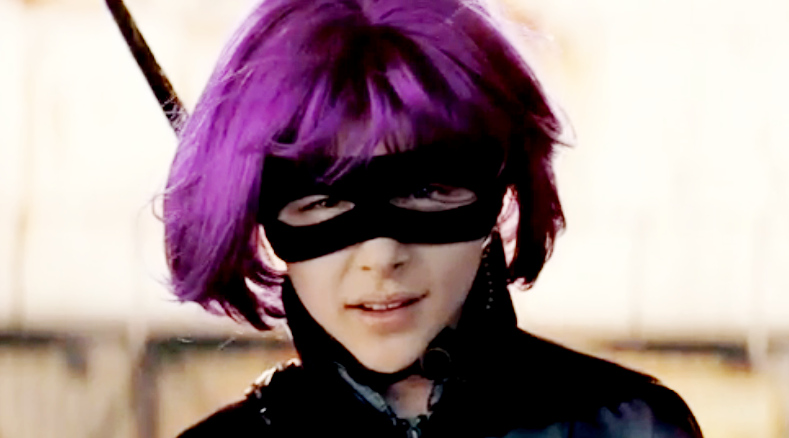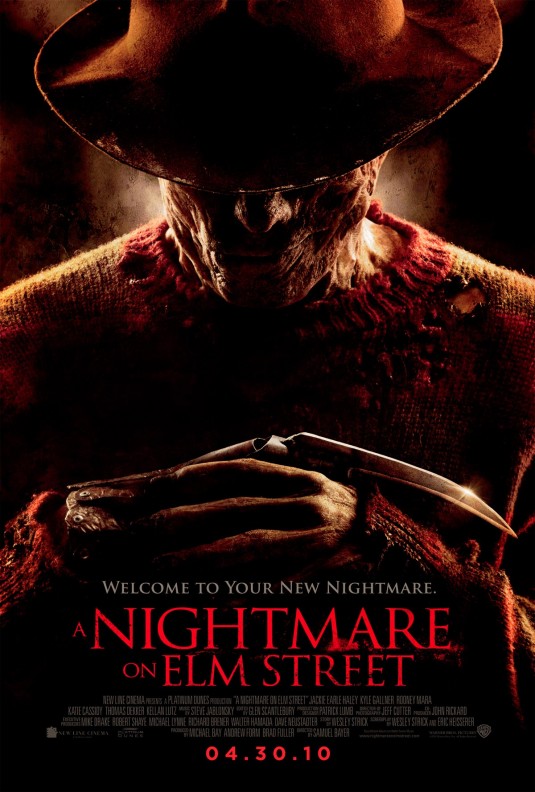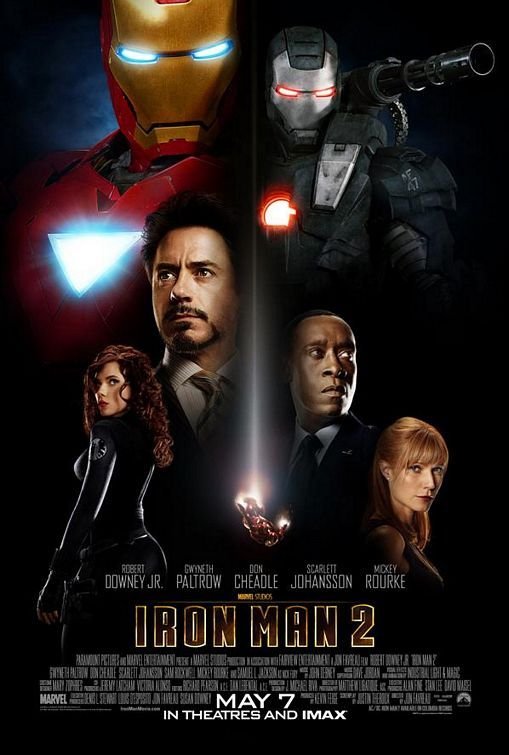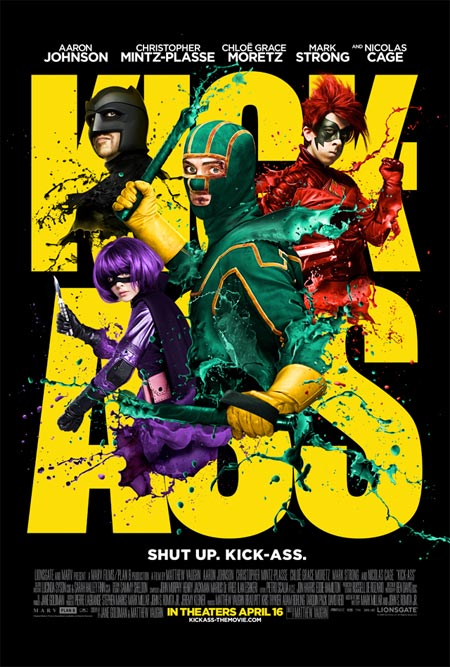Status: In theaters (opened 5/14/10)
Directed By: Ridley Scott
Written By: Brian Helgeland
Cinematographer: John Mathieson
Starring: Russell Crowe, Cate Blanchett, Max von Sydow, Mark Strong
I can’t say I was exactly chomping at the bit for another Robin Hood film, nor did I perceive this as something anybody else was really asking for, either. But if it was going to be done, the approach Ridley Scott’s Robin Hood takes is a pretty decent way to do it: it’s basically an origin story, picking up its telling of the all-too-familiar legend from a much earlier point than we’re used to. This gives the film a lot of freedom to do its own thing, which seems to me to be a far better way to go than the alternative of retelling the same story we’ve already seen countless times before—a story that was told quite well, 19 (!) years ago, by the Kevin Costner vehicle Robin Hood: Prince of Thieves.
Here, the screenplay by Brian Helgeland gets a chance to be creative, presenting a Robin (Russell Crowe) quite unlike the previous incarnations of the character. I don’t want to give too much of the story’s details away, but let’s just say that his family background is cleverly explained in a manner that adds an extra dimension of interest to the film, albeit one that doesn’t totally pan out as well as it could have (and, frankly, doesn’t make a whole lot of sense).
The events that lead to Robin becoming an outlaw—as he’s declared by film’s end by King John (Oscar Isaac)—are alternately exciting and tedious. The film opens with a depiction of a siege led by King Richard (Danny Huston) on his last Crusade, and the scale and spectacle of it are pretty impressive. Ridley Scott does an admirable job staging and shooting this and other similar sequences, keeping the action discernible while not indulging too much in the extreme close-up shaky-cam style—though he does use this technique at times, especially during the film’s climax. These battles are against the French, who are personified by a double-agent played by Mark Strong (and featuring, among his sidekicks, Denis Menochet, previously seen as Monsieur LaPadite in Inglourious Basterds).
When Robin Hood isn’t indulging in such epic battle scenes, it’s exploring these French-English relations, as well as the internal English politics of the time, and the movie becomes sort of a 12th-century political thriller. If that sounds boring to you, that’s because it kind of is. The film is over 2 hours long, and this is mostly because it spends great deals of time retreading the same sort of subject matter that was handled better in Braveheart. (Here it’s not Scotland fighting for its autonomy, it’s the northern territories of England fighting for representation. The rhetoric used—and the generically freedom-based themes explored—are nearly identical, though.)
Oh yeah, and there’s sort of a love story thrown in mostly as an afterthought, too. No tale of Robin Hood could be complete without a Marion, and Cate Blanchett takes her crack at that role here. She’s up to the task, but the film doesn’t really know what to do with her. She’s relegated to the background for almost the entire movie, until it decides that Robin needs something to fight for beyond his country and his identity, and so he professes his love to her more or less out of the blue. And then, as if in a further attempt to justify spending the money on an Oscar-winner for the part, the movie gives her Marion an additional role to play during its lengthy final battle, and this comes even more out of the blue.
This all adds up to a pretty uneven movie. It’s an origin story, telling the history of a well-known character from an angle we’ve not seen before; it’s a sprawling war movie, with epic battles on a large scale; it’s a period-political movie that tries a little too hard to be inspiring and relevant; and it’s a little bit of a love story, just because it feels that it has to be. Sometimes it has great action sequences, but at other times it plods along, trying to balance all of these elements and only partially succeeding. It’s fun to see how this Robin Hood goes about it, though: it features an accomplished cast, led by a good director, and takes place on vast outdoor sets—shot majestically by John Mathieson—that enhance the epic feel the movie’s striving for.
Status: In theaters (opened 4/30/10)
Directed By: Samuel Bayer
Written By: Wesley Strick & Eric Heisserer
Cinematographer: Jeff Cutter
Starring: Jackie Earle Haley, Kyle Gallner, Rooney Mara
I’ve never been really into horror movies. The extent of my knowledge of the Freddy from the 80s, for instance, is that I’m aware of a song that DJ Jazzy Jeff and the Fresh Prince did about him. So I’m not a very good candidate to comment on how this new incarnation of A Nightmare on Elm Street compares to its predecessor, but that’s okay, because I’ve always held that a film needs to be judged on its own—more or less in a vacuum—anyway. But I felt the need to get that caveat out of the way… plus, any time you get the opportunity to make a DJ Jazzy Jeff and the Fresh Prince reference, it’s hard to pass up.
Here we have the story of some high school kids from Ohio—guess which street they live on—who are all haunted by similar dreams featuring a familiar-looking guy with a burnt face and knives on the fingers of his gloved hand. For the first half of the film, we don’t know who the main characters are; it’s an ensemble cast of kids who take turns being the main focus of Freddy’s torment. This is kind of a fun approach for the movie to take, because we’re never sure if any of the kids are safe. At first, it seems they’re all dispensable, and indeed they take turns being dispensed in order. It goes like this: one kid attempts to stay awake, fearful of what may happen at the hands of Freddy (Jackie Earle Haley) if they don’t. Eventually they fall asleep, and Freddy gruesomely murders them, which results in their real-life death (it works according to the same rules as The Matrix, I guess). This should be scary, as one of the best ways for a movie like this to startle you is for it to surprise you with who dies and who survives. Unfortunately, though, it’s so uncreative in how it goes about this that the shock and surprise is all but lost. A kid falls asleep, narrowly escapes Freddy by waking up in the nick of time, and then falls asleep again and isn’t so lucky. Likewise, when Freddy shows up in their dreams it should scare us, but for the fact that we know exactly what’s coming and see it from miles away.
Eventually there are only a couple of kids left, and it becomes obvious that they will function as the protagonists, and thus immune from death. And then for the rest of the movie, these two—Quentin (Kyle Gallner) and Nancy (Rooney Mara)—must discover why Freddy is after them in the first place, and how to defeat him. They uncover a deep secret of their town, something their parents have been keeping from them, that sort of explains why Freddy is trying to kill them, but happily eschews any explanation of how it is he came to occupy their dreams in the first place. There are some cringe-worthy moments during this period of discovery, not so much due to the story being unfolded but due to the way the parents, played by Connie Britton and Clancy Brown, do such a poor job of lying to their kids about the past. There is, as there always must be, a clue that ties everything together, which Nancy finds with surprising ease. And then there’s the requisite scene where she just happens to find a book that just happens to explain—kind of—the particular type of mythology she’s dealing with.
This incarnation of that mythology—the iconic and overwrought Freddy Krueger—is a bit disappointing. While I appreciate the decision by the filmmakers to stick with old-school-style makeup effects to transform Jackie Earle Haley into the nightmare embodiment, I have to say I found them to be more distracting than scary, so much so that it took away from the intended effect. Haley, of course, is a good and capable actor, and it’s nice that flashback sequences depicting Freddy’s origins give him a chance to act without the makeup. His Freddy voice is similar to his Rorschach voice from Watchmen, but necessarily even more overdone. This isn’t a movie that relies on shadows to be its ally of fright, though; rather, director Samuel Bayer—a music video veteran making his first foray into feature film—is happy to show Freddy much more than necessary, drawing extended attention to his rubbery visage.
The rest of the cast is a predictably mixed bag. The two main teenage characters do a serviceable job—I guess Kyle Gallner did well enough as the emo kid in Jennifer’s Body to warrant a chance to carry a horror movie on his own—but the rest of the young actors are pretty bad. Usually in a horror movie this is a sign of them being cast more for their willingness to get naked than for their acting ability, but in surprising indifference to perhaps the most tried-and-true horror-movie cliche, this Nighmare is gratuitous-nudity-free. It makes up for that, I guess, by adhering to the second-most famous cliche of this genre, by setting up a sequel in its final frames. Like the rest of this movie—especially its attempts to scare its audience—that’s not exactly what I’d call surprising.
Comments Off on Wake Me When It’s Over
Status: In theaters (opened 5/7/10)
Directed By: Jon Favreau
Written By: Justin Theroux
Cinematographer: Matthew Libatique
Starring: Robert Downey Jr., Don Cheadle, Scarlett Johansson, Gwyneth Paltrow, Mickey Rourke, Sam Rockwell
Iron Man 2 is a sequel that knows exactly what’s expected of it. A big summer superhero blockbuster follow-up needs to have new villains and more of them, and we get that. It needs to take its hero and put him through a simplified hero’s journey, and Tony Stark (Robert Downey Jr.) certainly experiences that. It has to up the ante in terms of characters, gimmicks, weapons, and stakes, and we get that, too. It’s a movie that knows what it should be, and succeeds in being just exactly that. This is a good thing, but a surprise or two would’ve been nice, as well.
We start by learning about a Russian physicist named Ivan Vanko (Mickey Rourke) who aspires to be the anti-Iron Man. He has a personal vendetta against Tony Stark, but he also wants to ruin the entire Iron Man persona in the process of seeking his revenge. Then we meet Justin Hammer (Sam Rockwell), who aspires to be the anti-Tony Stark. He’s a rival defense contractor, who sees the same potential in metal warrior-suits that Jeff Bridges‘s character saw in the first film. These two offer a compelling one-two punch, and both Rourke and Rockwell hit their strides early and maintain near-perfect performances throughout.
On the other side—the good guys’ side—there’re some new faces as well. We get Scarlett Johansson as some sort of secret agent of S.H.I.E.L.D., the enigmatic group headed by Sam Jackson that was hinted at in the first Iron Man‘s post-credits coda. Tony’s relationship with his assistant, Pepper Potts (Gwyneth Paltrow), finds itself in new territory, and like Rourke and Rockwell, the ladies also offer a nice dynamic, vying for Stark on different levels and taking turns toying with him along the way.
The odd man out in all of this is James Rhodes, Stark’s friend and confidant and eventual sidekick. In the previous film he was played by Terrence Howard, whose rapport with Robert Downey was one of the story’s most entertaining aspects. Due to a contract dispute, in the sequel the character of “Rhodey” is portrayed by Don Cheadle, who despite being an extremely accomplished and naturalistic actor feels somewhat out of place here. He dons an iron suit of his own and becomes War Machine, but he never manages to complement Downey quite as well as Howard did. Their relationship, and its lack of that extra spark, is probably the most disappointing aspect of the movie, but even then it’s still not bad, per se; it’s just not as enjoyably satisfying as the dynamic established in the first film.
All of these characters (and others) are surprisingly well-balanced by the solidly sound screenplay by Justin Theroux. Everything revolves around Tony Stark, and the character remains one that Downey seems able to play with ease. Despite the sequel-cliche tendency to overload itself with too many additional characters, Iron Man 2 manages to keep things focused on its main protagonist, allowing the densely talented supporting cast to fill out its story rather than diluting it. Director Jon Favreau (who also supplies some comedic relief in his minor role as Stark’s bodyguard, Happy) again does an impressive job of juggling character development with action. This time we get some additional insight into Tony Stark’s background, by way of learning more about his father (a nice role for Mad Men‘s John Slattery). We also get plenty of hints helping to build up to a forthcoming Avengers movie, with Clark Gregg providing most of the Easter egg-style fun.
In fact, there may be a little too much setting-up-of-things-to-come. I think that my biggest issue with this movie from a storytelling standpoint is that it doesn’t really feel like a complete, self-contained tale; rather, it’s a lot of exposition for future sequels and spin-offs with a side-plot (the story of Ivan Vanko) standing in for a full story arc. Luckily that side-plot is handled well, told fully, and brought to life by talented performers. I said of the first Iron Man that it just may be the perfect superhero movie, and while I don’t think Iron Man 2 is quite the perfect superhero sequel, it’s still a solid, entertaining film. It’s not on the level of Spider-Man 2 or X2—both of which I thought were superior to their already-pretty-damn-good predecessors—but it’s close. In the end it just feels a little bland because it’s aiming to be part of a continuum that exists outside of its own story, and so it saves things for later when it should be giving everything it’s got to the story at hand. But it’s a good movie nonetheless, and it fits just about right where it should be. Sometimes it’s better to not be surprised than it is to be disappointed, and that’s what Iron Man 2 does for me.
Comments Off on More Metal
Status: In theaters (opened 4/16/10)
Directed By: Matthew Vaughn
Written By: Jane Goldman & Matthew Vaughn
Cinematographer: Ben Davis
Starring: Aaron Johnson, Christopher Mintz-Plasse, Chloe Grace Moretz, Mark Strong, Nicolas Cage
To make something like Kick-Ass, you have to be a pretty big fan of movies. Not in the cerebral, historian-esque manner of a Quentin Tarantino, but more in the Saturday-night-popcorn style of a casual fan. Likewise with a love of comic books. The makers of Kick-Ass seem to revel in the low-brow aspects of the two media, celebrating the trashiest traits of both with their film. It’s a movie based on a comic book that was conceived explicitly for the purpose of being made into a movie, and it wears this lineage as a badge of pride: Kick-Ass goes over the top with trying to differentiate itself, but that’s sort of the point, I think.
It tells the story of Dave Lizewski (Aaron Johnson), a “normal” high school kid who wonders—both aloud to his friends (Clark Duke and Evan Peters), and via clumsily sporadic narration—what it’d be like if “normal” people became superheroes. The screenwriters, Jane Goldman and directory Matthew Vaughn, are obviously big fans of Watchmen (Vaughn even allows the venerable “best graphic novel of all time” a brief appearnance in the film, and the choice of color scheme for the movie’s promotional material is pretty obviously intended to invoke this inspiration as well), so they start their story with a similar—though less creative and not as fully realized—premise. But something odd and confusing happens when Lizewski purchases a scuba suit off of eBay and dubs himself “Kick-Ass”: he goes through an (admittedly non-standard) superhero origin-story type of ordeal, and this kid who wondered what it’d be like for somebody without superpowers to become a hero finds himself… with superpowers. Not like the Spider-man kind, mind you, but he definitely has… an advantage, you might say. You’ll see.
Kick-Ass soon learns that he’s not alone; in this world where nobody decides to be a superhero, it turns out some other people have, in fact, done just that. He soon meets a justice-minded ex-cop (Nicolas Cage) and his 11-year-old daughter (Chloe Grace Moretz), who go by the names “Big Daddy” and “Hit Girl” when they don their tights. And then Kick-Ass really tips its hand. It turns out that the thing this movie is most interested in is shocking us, and its vehicle for doing so is Hit Girl. It’s a shame, too, because Chloe Moretz is probably the highlight of the film. She’s one of those child actors who not only plays her role well, but goes above and beyond what it calls for to breathe extra dimensions into her character. There’s this snarl thing she does with her upper lip that would at times feel like over-acting, if she weren’t so obviously fully aware of just when to overdo it and when not to. She’s a terrific young actress who deserves better than Vaughn’s particular brand of exploitation.
There are but a few examples that don’t give away too much of the plot of the movie, but consider this for starters: the first time we see Hit Girl in character, she massacres a roomful of people with a double-ended sword, while spewing language that sounds like… well, me, I guess. That’s fine with me, but here’s where Kick-Ass tries too hard: the soundtrack during this scene blares “Banana Splits” by The Dickies (this song), which sounds like the theme song to a bad Saturday morning cartoon. It’s not enough that there’s an 11-year-old girl who swears a lot and brutally slaughters bad guys; the movie has to go over the top and give her an antithetically girlie song to do it to.

At least Vaughn and Co. are kind enough to pull out such tricks right off the bat, so you know what you’re in for. They continue throughout the film, but you become desensitized to them pretty quickly. Kick-Ass essentially tells the same jokes over and over again; they start out feeling annoyingly forced, and progress to annoyingly repetitive. And yet, Moretz grows on you, not because of the manner in which her character is portrayed, but despite it. The shock-fest continues throughout the film: there’s a guy exploding in a large microwave (I guess the filmmakers liked Gremlins), a character who is burned alive onscreen, and countless limbs hacked off in vivid detail. The dialogue, too, tries too hard to go overboard; in one particularly irritating instance, a character misuses the word “shat” in a manner that just feels like the screenwriters decided it’d be funnier than “shit” because it’s more attention-getting.
There’re good things about a movie like this, too. It gleefully embraces the most tried-and-true comic book stereotypes and manages to make them fun. Mark Strong’s crime boss is just the right amount of over-the-top, as is Nic Cage’s would-be superhero (I particularly enjoyed his hilariously exaggerated in-costume speech pattern). There’s a cool origin scene that’s told with slightly-animated comic panels, and it achieves just the right balance of economy of story-telling and celebratory love of the medium. (These guys have also seen Kill Bill Vol. 1, and took some good cues from it.) And yet, again, Kick-Ass goes overboard with movie references, too. Paying homage is one thing; having characters repeat, verbatim, some of the most over-quoted lines in movie history is another (both “Say hello to my little friend” and “Wait’ll they get a load of me” are broken out here).
Yet despite all of these annoying instances of Kick-Ass trying way too hard, both to shock and to impress with its knowledge of other films and comics, I found myself having a helluva lot of fun watching it. (In fact, I saw it twice, and enjoyed it more the second time than the first, knowing what to expect in terms of tone ahead of time.) It even tries to have a bit of a message behind all of the violence and the cute little girl with the potty mouth, which I suppose is a good thing for a movie that’s inevitably going to draw kids who are way too young to be watching it. There’s enough here to find enjoyable, though, but only if it’s your style of movie—which, for many, won’t be the case. And the higher your tolerance for—or enjoyment of—its sometimes annoying, often cheesy extravagances, the more fun you’ll have.
Comments Off on Watchkids









